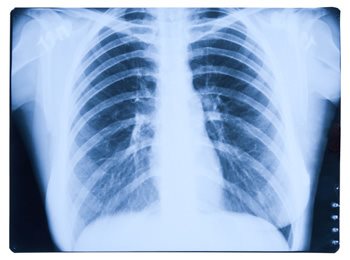The Life-Ending Prognosis of Mesothelioma
Mesothelioma is a rare form of cancer that affects the mesothelium, which is the lining that protects and covers the internal organs of the body. The cancer is almost exclusively related to the prolonged exposure to asbestos, a material that is commonly used for insulation and in the production of cement.
Mesothelioma is known to attack the lining of the lungs, though it can also form in the peritoneum, which is the lining of the abdominal cavity, the pericardium, which is the protective sac around the heart, and the tunica vaginalis.
Upon being diagnosed with mesothelioma, physicians will discuss with their patients a mesothelioma prognosis, or the course of action of both treatment and the possible development of the disease itself. If you need legal advice and assistance, contact mesothelioma lawyers.
Common Mesothelioma Prognosis Factors

To this day, there is no known cure for mesothelioma. Therefore, the prognosis for a mesothelioma patient will tend to have negative results.
Because there exist no known or effective cure, mesothelioma prognosis will usually take shape regarding ways in which to best treat the symptoms of the disease and possibly improve the patient’s life expectancy.
However, there are various factors that will affect a mesothelioma prognosis. It should be noted that an unfortunate occurrence with mesothelioma is the fact that the cancer is usually diagnosed in the later stages of the disease.
This occurs because mesothelioma is considered to be a latent disease, which means that symptoms will often times not be present or experienced until decades after the exposure to asbestos.
The best situation with mesothelioma patients occurs when the cancer is detected in the early stages, though this proves to be a rare circumstance. The following factors are those that will affect and determine a mesothelioma prognosis:
1. Type of Mesothelioma: There four known types of mesothelioma, pleural, peritoneal, pericardial, or testicular. Depending on the type of mesothelioma, there will be different treatment options available.
However, treatment options will usually be surgery, radiation, and therapy, often times with the three methods used in some sort of combination for more effectiveness.
2. Size of Mesothelioma Tumor: The overall size and location of the tumor within the body will affect mesothelioma prognosis, particularly in terms of the most viable and effective treatment options. Surgery is often the first option explored, for the removal of the tumor would be the optimum course of action. However, depending on the location, surgery may not be possible if the surgery could affect vital organs.
3. State of Mesothelioma: There are four stages of mesothelioma, ranging from stage one to stage four. Stage four mesothelioma is the most dire and advanced stage, which often leaves the patient physically unable to undergo surgery due to the frail condition of his/her physical health.
4. Smoking: Though mesothelioma is not necessarily associated with smoking or using tobacco products, when it affects the lungs, whether or not the patient is a smoker can affect the possible treatment options. Smoking and its damage to the lungs can further create complications when considering treatment, particularly surgery.
Mesothelioma Prognosis and Life Expectancy
As mentioned, detection of mesothelioma is crucial in the overall life expectancy of a patient suffering from the disease. However, the cancer is most commonly discovered in the later stages of progression, limiting not only possible treatment methods, but also lowering life expectancy significantly.
Reported statistics will present dire life expectancy rates regarding mesothelioma. Most patients will usually have a life expectancy between 10 to 12 months after diagnosis.